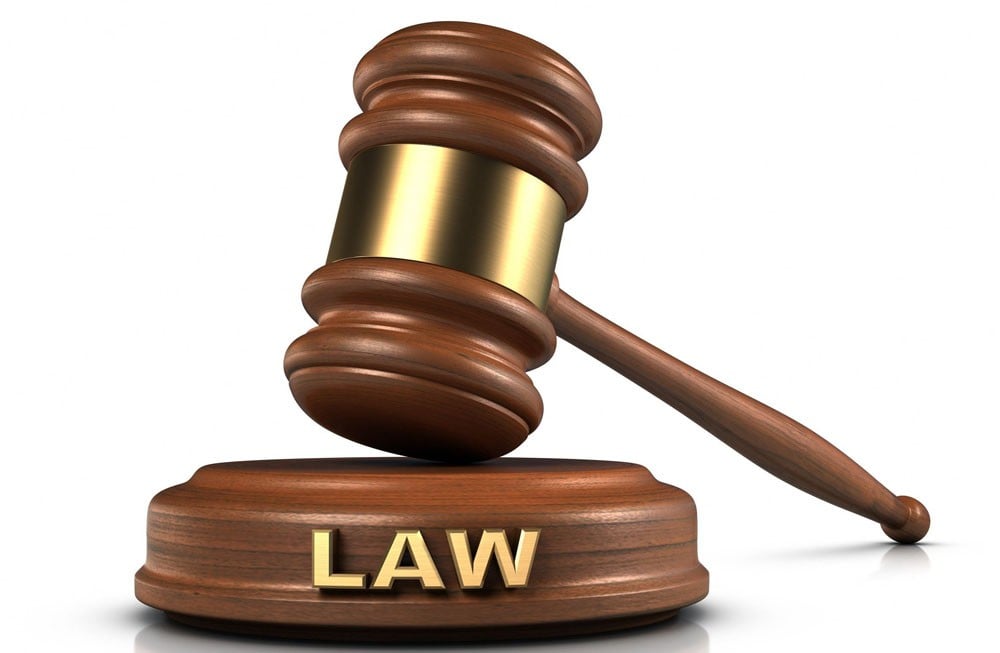
Everyone who violates the law of the land must answer before a court of law

There is a common thread to multiple news stories that have made headlines during this week. We have seen debate about the role of the military in launching ‘clean-up’ operations in Punjab, the stand-off with the odd-yet-endearingly named Chotu gang and the issue of dismissal of corrupt army officers by the COAS.
If we go by outcomes alone then, perhaps, we can find reason to celebrate all of this. However, we will only ignore the process at our own peril. Of course it is important to fight terrorists in Punjab and of course police should be able to effectively fight thugs. But the police’s failure is not rooted in some inherently superior ability of the military. Nor is the military the best solution for such failures. This issue is rooted in the lack of sustainable and effective commitment, impatience with democracy -- civil-military imbalance is no small part of that, along with myopic policies of Punjab’s current government.
It is no secret that our police remains handicapped because of lack of training, funds and the constant meddling of those in power -- be it civilian or military rulers. It does not help matters that for every problem, CM Sharif comes up with a new "force". As the peak of summer approaches, we now see the Dolphin Force (clad in all-black no less) roaming around in pairs. Sure they look good but one cannot be blind to the police jawans of the local police station who are never thought worthy of an up-grade. The regular police force that are expected to solve the overwhelming number of criminal complaints and put their lives on the line of duty every single day, remain woefully under-trained. Will our "solutions" to each problem be devised with the sole aim of making news? Or do we owe something more to the men and women of police we expect to lay down their lives?
If you have a boxer who is given the best trainers, almost all the food/supplements and another who only gets left-overs (and is constantly asked to fight with one hand tied behind his back), who do you think will look better? The police, in this not so profound example, is the second boxer. Of course the military was going to be more "effective" against Chotu gang -- but only because we did everything possible to ensure that the police look bad.
Yes, we need to root out terrorists from Punjab -- but a military force can only kill individual terrorists, it cannot be expected to eliminate networks teaching violent extremism. That is where investigation skills, and powers, come in. We granted sweeping powers to investigators through The Investigation of Fair Trial Act, 2013. And then we criticised the law because, wait for it, the police (without prejudice to other problems with the law) is not trained to exercise, or guard against abuse of, such powers. To balance this out, we granted similar powers to the intelligence agencies. But they never needed any law in the first place. So a vicious cycle continues.
Furthermore, equally relevant is the failure of effective accountability mechanisms. And when I say "effective" I mean applicable to all -- including the military. As much as we might celebrate dismissal of corrupt military officers, no one should be able to convince you that this somehow changes things. Military officers, if they engage in corruption, should face the same process that is faced by civilian bureaucrats and politicians. Corruption is an offence under multiple laws in Pakistan and if we are to ensure a stronger democracy then civilian controlled institutions must be able to hold accountable whoever is unscrupulous with public money. This does not mean that all is well with institutions tasked with investigating and prosecuting corruption -- indeed a lot is wrong with them. But this only underscores the need for further developing these institutions, instead of creating a new agency each time or keeping the cases of a chosen few away from the public glare.
The role of the police cannot be limited to the formalities of searches and making the odd arrest -- we cannot expect these brave men and women to die by the dozens if we do not give them the tools to enforce the law that empowers them.
For the above reason, we the citizens should respect the call of politicians if they do not want to grant Army the authority under Article 245 of the Constitution to act in aid of civil power. This is no easy call. And if politicians decide the Army is not needed (and I completely respect the "our existence is at stake" argument here), the politicians in turn must start acting to ensure that our police is well trained and empowered. What we must resist is the narrative that ignores our socio-political climate and insists that the military is somehow the "best" institution, or even the most effective one, to guarantee our survival.
This is in no way meant to suggest that we go easy on our politicians -- we must continue to ask hard questions of them. As we do this we must continue to remind ourselves that corruption, as an evil, affects entire societies and that a particular uniform is no guarantee of clean conduct. And everyone who violates the law of the land must answer before a court of law. Dismissal of military officers for corruption is essentially a service related matter, i.e. professional misconduct rendered them liable for dismissal. But the law of the land does not stop there. To punish corruption as an offence we have statutes and courts which bring out important information and raise hard questions. The law must take its course -- for those in as well as out of uniforms.